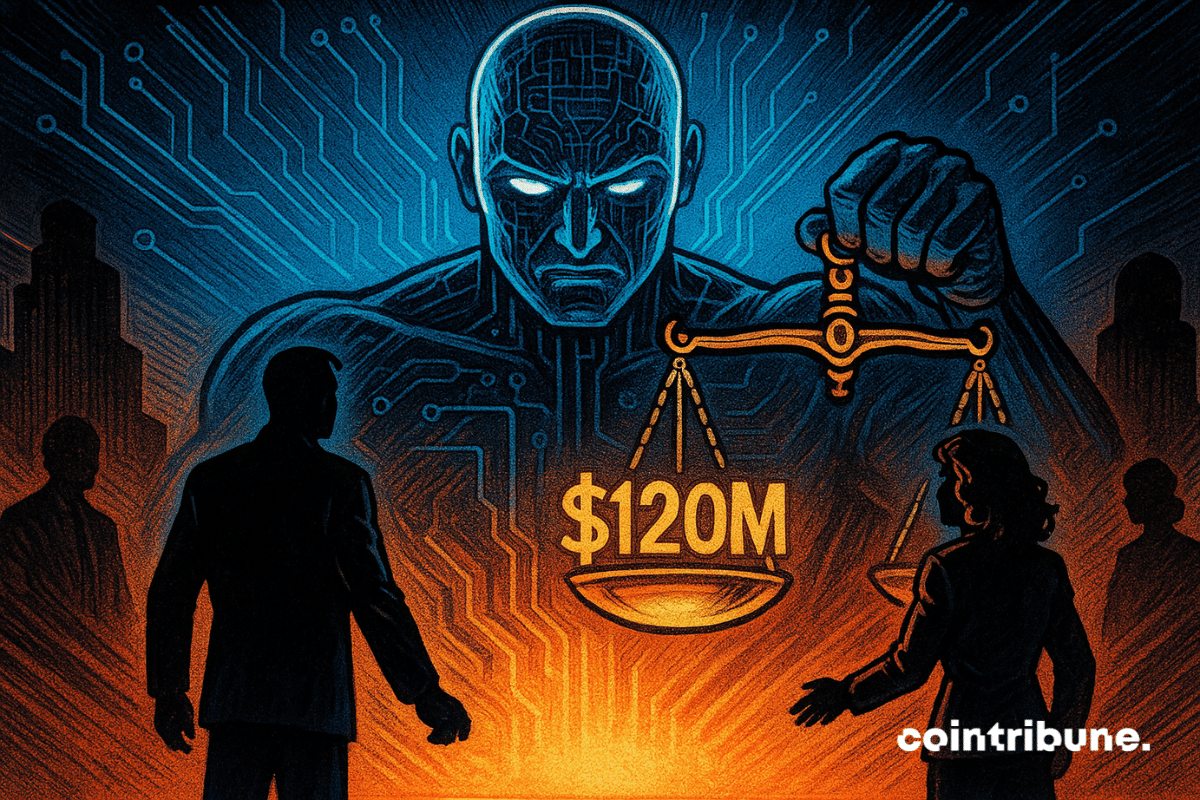Sui Stablecoin Payments: A Revolutionary Step for South Korean Commerce
BitcoinWorld
Sui Stablecoin Payments: A Revolutionary Step for South Korean Commerce
Imagine a world where paying for your morning coffee or your favorite meal is as simple as a few taps, powered by the secure and efficient world of blockchain. This vision is rapidly becoming a reality in South Korea, thanks to a groundbreaking partnership. Sui, a leading Layer 1 blockchain, has joined forces with t’order, a prominent South Korean table ordering platform, to introduce a Korean won-based stablecoin payment system. This move marks a significant leap for Sui stablecoin payments, bringing digital currency closer to everyday transactions.
What Are Sui Stablecoin Payments and Why Do They Matter?
At its core, a stablecoin is a type of cryptocurrency designed to maintain a stable value, often pegged to a fiat currency like the US dollar or, in this case, the Korean Won (KRW). This stability makes them ideal for everyday transactions, unlike volatile cryptocurrencies such as Bitcoin.
The introduction of Sui stablecoin payments means that consumers in South Korea can now use a digital representation of the KRW, backed 1:1 by actual Korean Won, for their purchases. This system leverages Sui’s high-throughput and low-latency blockchain, promising faster and potentially more cost-effective transactions compared to traditional methods.
For a country as technologically advanced as South Korea, integrating blockchain into retail payments represents a natural evolution. It offers a glimpse into a future where digital assets seamlessly integrate into our financial lives, making payments more efficient and accessible.
Bridging Blockchain and Everyday Commerce: The t’order Integration
The partnership between Sui and t’order is not just about technology; it’s about practical application. T’order is a major player in South Korea’s hospitality sector, boasting an impressive network of over 300,000 point-of-sale (POS) terminals. This extensive reach provides a massive springboard for the adoption of Sui stablecoin payments.
Here’s how this collaboration is set to unfold:
- Widespread Access: Over 300,000 POS terminals will be connected to Sui’s blockchain payment network. This means a vast number of restaurants, cafes, and retail outlets could soon accept stablecoin payments.
- Seamless Integration: The goal is to make the payment process intuitive and user-friendly, mirroring the ease of existing digital payment methods.
- Real-World Utility: This isn’t just a pilot project; it’s a direct integration into an established payment ecosystem, offering genuine utility for digital assets.
This initiative directly addresses one of blockchain’s biggest challenges: bridging the gap between innovative technology and practical, everyday use cases. By partnering with an established platform like t’order, Sui is ensuring that its stablecoin solution has immediate and widespread relevance.
Unlocking Benefits: Why This Partnership is a Game Changer
The launch of KRW stablecoin payments via Sui and t’order brings a host of potential benefits for various stakeholders. This collaboration is set to revolutionize how businesses and consumers interact with digital currency.
Consider the advantages:
- For Consumers: Enjoy faster transaction speeds and potentially lower fees. The stability of KRW stablecoins removes the volatility risk associated with other cryptocurrencies, making them a reliable payment method.
- For Businesses: Experience streamlined payment processing and potentially reduced operational costs. The transparency of blockchain transactions can also offer enhanced security and easier reconciliation.
- For the Sui Ecosystem: This partnership significantly boosts the utility and adoption of the Sui blockchain. It demonstrates a powerful real-world use case for Sui stablecoin payments, attracting more users and developers to the platform.
- For the Wider Economy: It promotes financial innovation and could pave the way for broader acceptance of digital currencies in traditional commerce.
Moreover, this initiative positions South Korea at the forefront of digital payment innovation, showcasing how blockchain technology can enhance national payment infrastructure.
Navigating the Future: Potential Challenges and Opportunities for Sui Stablecoin Payments
While the prospects are exciting, the path to widespread adoption for Sui stablecoin payments will naturally involve challenges. However, these challenges also present significant opportunities for growth and refinement.
Key considerations include:
- User Education: Many consumers may still be unfamiliar with stablecoins. Educating the public on their benefits and ease of use will be crucial for adoption.
- Regulatory Landscape: The regulatory environment for stablecoins is continuously evolving. Adhering to current and future regulations will be vital for long-term success.
- Scalability and Security: As transaction volumes increase, Sui’s blockchain must demonstrate its ability to scale efficiently while maintaining robust security measures.
- Integration with Existing Systems: Ensuring seamless integration with diverse POS systems and accounting software will be key for merchant acceptance.
Despite these hurdles, the opportunity to transform a significant portion of South Korea’s retail payments is immense. Successful implementation could set a precedent for other nations looking to integrate blockchain into their national payment infrastructures.
The collaboration between Sui and t’order represents a pivotal moment for digital payments in South Korea. By integrating KRW stablecoin payments into over 300,000 POS terminals, Sui is not just launching a new payment option; it is laying the groundwork for a more efficient, secure, and technologically advanced financial future. This initiative showcases the immense potential of blockchain to move beyond niche applications and into the mainstream of everyday commerce. As this partnership unfolds, it will undoubtedly offer valuable insights into the future of global digital payments, solidifying Sui’s role as an innovator in the blockchain space.
Frequently Asked Questions (FAQs)
What is a stablecoin?
A stablecoin is a type of cryptocurrency designed to minimize price volatility. It is typically pegged to a stable asset like a fiat currency (e.g., the US dollar or Korean Won) or a commodity, aiming to maintain a consistent value.
How do Sui stablecoin payments work with t’order?
Sui stablecoin payments allow users to pay for goods and services at t’order-enabled POS terminals using a Korean Won-pegged stablecoin. These transactions are processed on the Sui blockchain, offering speed and security.
What are the main benefits of using KRW stablecoins for payments?
The main benefits include faster transaction speeds, potentially lower processing fees for merchants, enhanced security through blockchain technology, and price stability compared to other cryptocurrencies.
Is this payment system safe and secure?
Yes, transactions are processed on the Sui blockchain, which is designed for high security and transparency. The decentralized nature of blockchain technology adds an extra layer of protection.
Will all t’order locations accept Sui stablecoin payments?
The announcement indicates that the collaboration will connect over 300,000 POS terminals deployed by t’order. Adoption will likely be rolled out progressively, with the aim of widespread availability.
If you found this article insightful, please consider sharing it with your network! Your support helps us bring more valuable insights into the world of cryptocurrency and blockchain innovation.
To learn more about the latest crypto market trends, explore our article on key developments shaping stablecoins institutional adoption.
This post Sui Stablecoin Payments: A Revolutionary Step for South Korean Commerce first appeared on BitcoinWorld.
You May Also Like

Fetch.ai and Ocean Protocol Near Settlement in $120M FET Token Dispute

BNB Soars as CZ’s Pardon Ignites Crypto Markets
